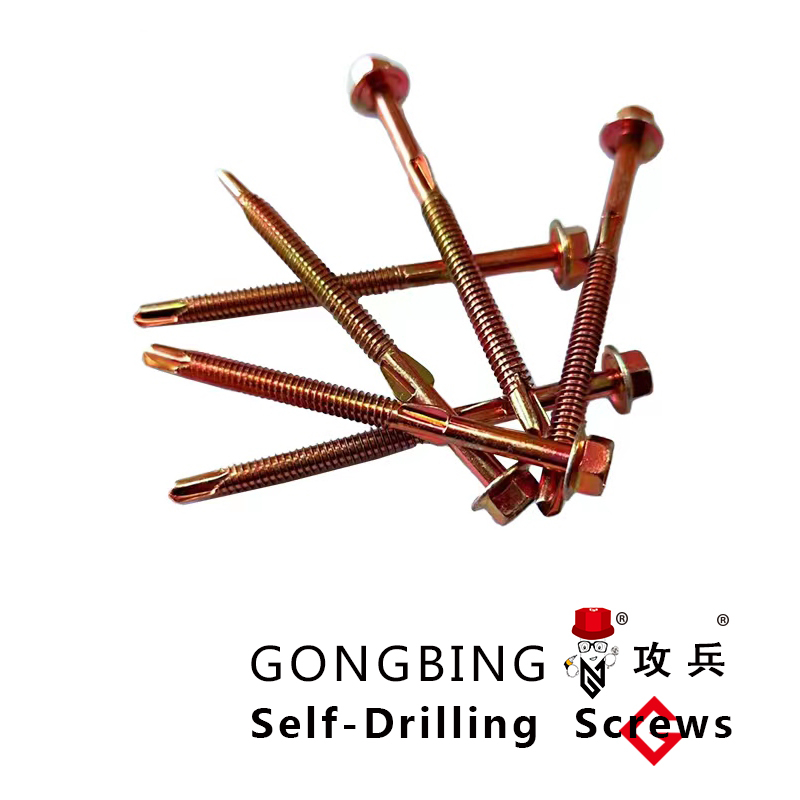High-Quality Roofing Self-Drilling Screws for Durable and Efficient Roof Installations
Understanding Roofing Self-Drilling Screws An Essential Component for Roofing Projects
When it comes to roofing projects, whether for residential or commercial buildings, the importance of high-quality materials cannot be overstated. One such vital component is the roofing self-drilling screw. These screws are designed specifically for roofing applications, providing a blend of convenience, efficiency, and reliability that traditional fasteners simply cannot match. In this article, we will explore the features, benefits, and applications of roofing self-drilling screws.
What are Roofing Self-Drilling Screws?
Roofing self-drilling screws, often referred to as tek screws, are specially engineered fasteners that can penetrate roofing materials without the need for a pre-drilled hole. They come with a sharp, hardened point that allows them to drill into various types of substrates, including metal and wood. Their design typically features a hex head that provides a robust gripping surface for a wrench or socket, making installation fast and secure.
Key Features
1. Self-Drilling Capability One of the standout features of these screws is their ability to drill through metal or other hard materials without requiring pre-drilling. This saves time and effort during the construction process.
2. Corrosion Resistance Roofing self-drilling screws are often coated with special finishes to resist rust and corrosion. This is particularly important in roofing applications, where exposure to the elements can lead to deterioration over time. Common coatings include zinc plating and polymers that provide added protection.
3. Variety of Sizes and Lengths These screws come in various sizes and lengths to accommodate different roofing materials and thicknesses, giving builders the flexibility to choose the right screw for their specific project.
roofing self drilling screws

Benefits of Using Roofing Self-Drilling Screws
1. Time Efficiency Because these screws do not require pre-drilling, they can considerably reduce the time spent on installation. This leads to quicker project completion and reduces labor costs.
2. Stronger Seals Proper installation with self-drilling screws results in a tighter seal, which is crucial for preventing leaks and ensuring the longevity of the roof. Their ability to penetrate materials securely helps maintain structural integrity.
3. Reduced Material Waste With self-drilling screws, the precision of drilling means less risk of damaging materials during installation, ultimately reducing waste and saving money on materials.
4. Enhanced Durability Given their corrosion-resistant properties and strong design, roofing self-drilling screws contribute to the overall durability of roofing systems. This ensures a longer lifespan for the roof, providing peace of mind for property owners.
Applications
Roofing self-drilling screws are primarily used in metal roofing applications, where they secure panels, sheets, and other components directly to the underlying structure. They are also used in installing siding and various other exterior projects, making them a practical choice for commercial and residential construction.
Conclusion
In summary, roofing self-drilling screws are an indispensable component in modern roofing projects. Their unique features, such as self-drilling capability and corrosion resistance, combined with the benefits of time efficiency and durability, make them a preferred choice for contractors and builders alike. By understanding the importance of these fasteners, property owners can ensure that their roofing systems are installed correctly and built to last.
-
Weatherproof Plastic Expansion Anchors for OutdoorNewsJun.06,2025
-
Sustainability in the Supply Chain: Eco-Friendly TEK Screws ProductionNewsJun.06,2025
-
Load-Bearing Capacity of External Insulation FixingsNewsJun.06,2025
-
Double Head Bolts: Enhancing Efficiency in Industrial MachineryNewsJun.06,2025
-
Corrosion Resistance in Chipboard Screws: Coatings for Wholesale DurabilityNewsJun.06,2025
-
Butterfly Toggle Bolts : Enhancing Structural ResilienceNewsJun.06,2025
